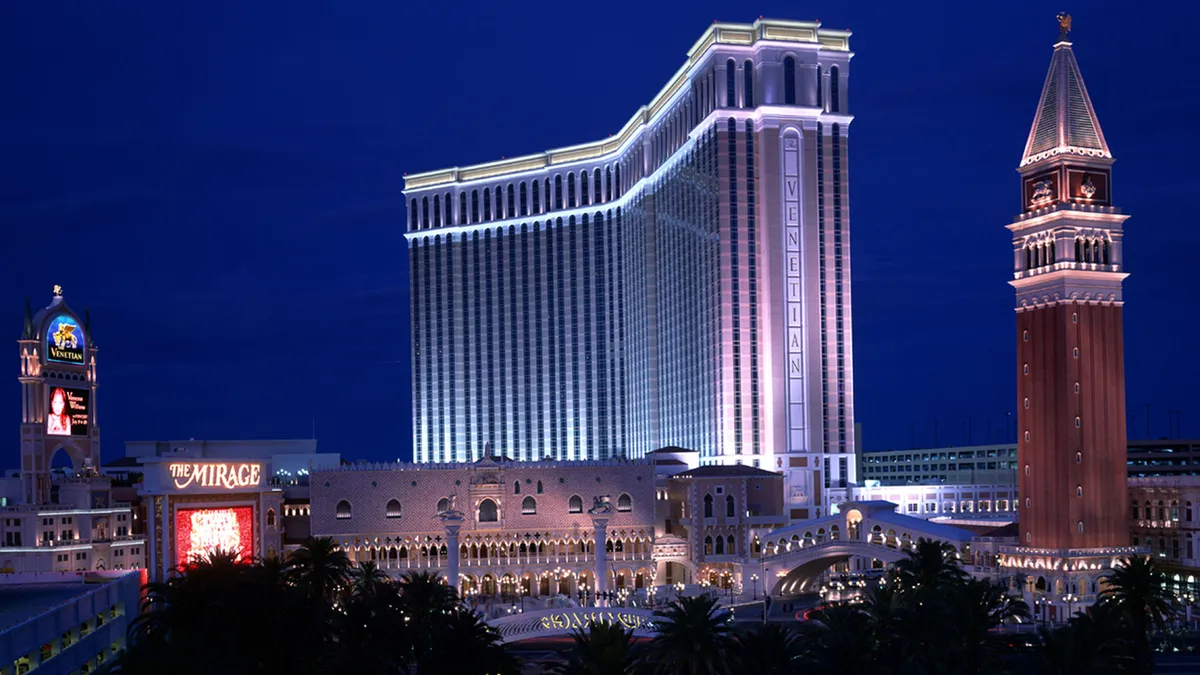Dive Brief:
- The owners of the Venetian Resort Las Vegas agreed to pay $850,000 to settle allegations by the U.S. Equal Employment Opportunity Commission that the resort refused to accommodate employees of diverse religious faiths, including Orthodox Christianity, Catholicism, Judaism, Jehovah’s Witnesses and Buddhism, EEOC announced July 2.
- EEOC alleged the resort suspended, denied promotional opportunities to and discharged or constructively discharged employees as a result of denied accommodations.
- According to a June 26 lawsuit, EEOC v. Venetian Las Vegas Gaming, LLC, the alleged discrimination began in 2016 and violated Title VII of the Civil Rights Act of 1964. Venetian Las Vegas Gaming purchased the resort after the charges were filed, according to EEOC.
Dive Insight:
Under Title VII, employers have a broad obligation to protect “the rights of workers in our pluralistic society to live out their various faiths in the workplace,” EEOC Acting Chair Andrea Lucas stressed in a media statement.
“As this case shows, reasonable accommodations might look like, among other things, allowing certain days off for Sabbatarians or Buddhists and allowing beards for Orthodox Christians. It also means not punishing anyone who speaks out in favor of these rights,” Lucas said.
Title VII requires employers, absent undue hardship, to provide a reasonable accommodation to an employee or job applicant whose sincerely held religious belief, practice or observance conflicts with a work requirement, EEOC guidance explains.
Accommodating someone usually entails making an exception or adjustment to a particular work requirement so that person can observe their practice, the guidance notes.
The lawsuit in this case and the July 1 consent decree outlining the settlement’s terms don’t identify what accommodations were requested or should have been provided. Rather, the decree said the parties will discuss victim-specific relief, including granting a religious accommodation or modification.
But employers may gain insight into possible issues by reviewing other recent cases.
For example, last week, EEOC sued a Wisconsin sports park and events venue for allegedly firing an employee because he frequently posted on his personal social media account Bible verses and faith-based messages. The posts did not mention the workplace or co-workers, EEOC alleged.
“While employers must remain alert to potential harassment in the workplace, religious statements made outside of work that do not reference or impact anyone in the workplace do not constitute unlawful harassment,” Lucas stated in an agency announcement.
In another example, as part of an EEOC settlement in 2022, United Airlines agreed to let a Buddhist pilot diagnosed as alcohol dependent participate in an alternative to the Alcohol Anonymous recovery program to obtain FAA medical certification so he could fly again.
The AA meetings were allegedly held in churches and required acknowledgment of a “Power greater than ourselves” and “God” and conflicted with the pilot’s Buddhist principles, EEOC said.
Under the consent decree in the current case, in addition to the monetary settlement, the resort’s HR and supervisory personnel must complete a minimum of two hours of compliance training.
The resort must also refrain from providing employees involved in the action negative references and ensure they are not otherwise adversely affected by the action, according to the decree.
Additionally, EEOC will determine who is eligible to be a claimant based on its assessment of the facts and damages under Title VII, the decree said.
EEOC Regional Attorney Anna Park commended the resort for its cooperation in resolving the lawsuit early on and for “agreeing to implement proactive measures to ensure religious accommodations are handled more effectively,” she stated in the media release.















